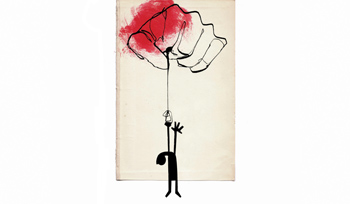Submitted by Denitsa on
ACERWC (Senegal)
Title:
Centre for Human Rights, University of Pretoria and La Rencontre Africaine pour la Defense des Droits de L'Homme v. Senegal
Court:
African Committee of Experts on the Rights and Welfare of the Child
Citation:
Decision No 003/Com/001/2012
Date:
15 April 2014
Instrument(s) Cited:
African Charter on the Rights and Welfare of the Child
UN Committee of the Rights of the Child, General Comment No. 1 on the Aims of Education
UN Committee of the Rights of the Child, General Comment No. 15 on the right of the child to the enjoyment of the highest attainable standard of health
UN Committee of the Rights of the Child, General Comment No. 8 on the right of the child to protection from corporal punishment and other cruel or degrading forms of punishment
UN Committee on the Elimination of Discrimination against Women and UN Committee on the Rights of the Child, Joint general recommendation No. 31 /general comment No. 18 on harmful practices
UN Committee against Torture, General Comment No. 2 on the Implementation of article 2 by States parties
Case Summary:
Background:
The two organisations - Centre for Human Rights, University of Pretoria and La Rencontre Africaine pour la Defense des Droits de L'Homme - submitted a complaint alleging Senegal had violated, and was continuing to violate, the rights of as many as 100,000 children (known as talibés). The talibés are young boys, aged between 4 and 12 years old, from Senegal and its neighbouring countries who had been removed from their families by instructors, known as marabouts, on the basis that the talibés would be given a Qur'anic, religious education in schools (known as daaras) in the urban centres of the Republic of Senegal.
In particular, the complaint alleged that the talibés, once in the custody of the marabouts, were forced to work on the streets as beggars for anywhere between 6 to 8 hours a day (leaving them less than 5 hours for their Qur'anic studies) and required to meet daily quotas of goods obtained from begging. Failure to fulfil these daily quotas would result in beatings and punishments at the hands of the marabouts. Furthermore, the conditions of the daaras were unsafe, unhygienic and generally unsuitable as accommodation as the talibés slept in overcrowded rooms or outside, with little or no access to clean water or sanitation, leaving them susceptible to contracting various diseases. The talibés were also chronically underfed, and when they were injured whilst begging (by speeding motor vehicles or the like), the marabouts did not provide them with adequate medical care or assistance.
The Complainants argued that the Senegalese government, in failing to adequately protect the talibés from exploitation by the marabouts, was breaching a number of the talibés' rights guaranteed under the African Charter on the Rights and Welfare of the Child (ACRWC).
Issue and resolution:
Child exploitation and violence against children. Whether the government’s failure to adequately protect the talibé children amounted to a breach of the ACRWC. The Committee found that the government was in breach of Article 4 (best interests of the child), Article 5 (the right to survival and development), Article 11 (the right to education), Article 14 (the right to health and health services), Article 15 (child labour), Article 29 (prohibition of sale, trafficking and abduction of children), Article 16 (protection against child abuse and torture) and Article 21 (protection against harmful and social practices) of the Charter.
Court reasoning:
The Committee noted that some measures to address the situation of the the talibé children were taken by the Senegalese government, including a workshop regarding strategic plans of action for the eradication of child begging, an inter-ministerial council on the managing of child begging, and an ad hoc committee which had adopted various recommendations regarding the elimination of child begging. However, based on evidence presented by the complainants, such as evidence of the low rate of prosecution and inadequate criminal sanctions of marabouts who had forced talibés into begging, despite a legal ban on forced child begging, the Committee agreed with the complainants that Senegal had, despite its legislation and other measures, in fact put little effort towards actual prevention of child exploitation and the protection of the talibés.
The failure to enforce current national, regional and international laws and agreements and otherwise take adequate actions, including inspecting the daaras and ensuring they were fit for the purpose of providing to the talibés education, housing and food, meant they were in breach of their international obligation to protect children under the ACRWC.
Therefore, although the Senegalese government was not directly responsible for the abuse of the talibés and that it had in fact taken legislative measures against begging and child trafficking, these measures alone were insufficient to protect the rights of the talibés and the Senegalese government was required to take further appropriate measures to ensure that children were protected.
Notes:
The two organisations were allowed to bring the complaint before the Committee directly (bypassing the Sengealese judicial system) because, whilst it would be impractical for all of the potential victims to approach the Senegalese courts individually, the complainants have no standing under Senegalese law to bring the case themselves (as they are not the actual victims). The ACERWC therefore held that it would be impossible to obtain an effective and/or sufficient remedy from the Senegalese courts and accepted hearing the complainants' case.
Link to Full Judgment:
http://acerwc.org/decision-on-the-talibes-children-case/
This case summary is provided by the Child Rights International Network for educational and informational purposes only and should not be construed as legal advice.

